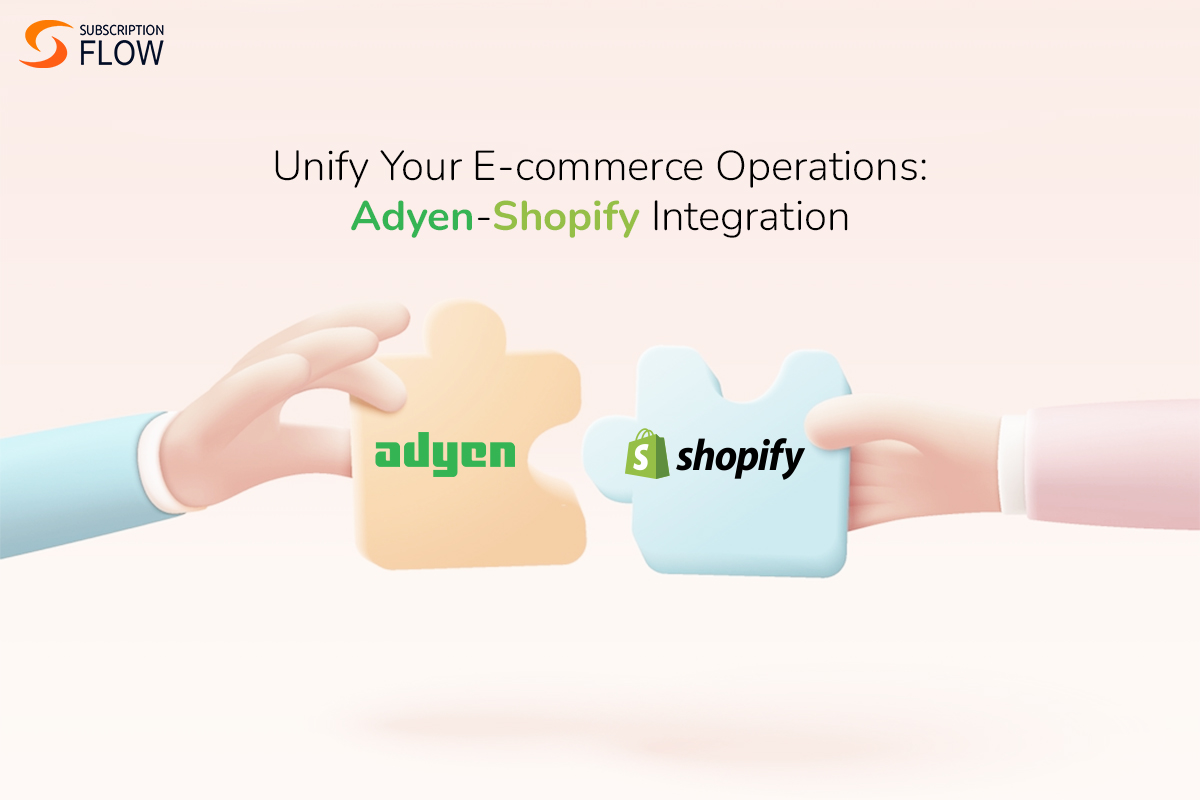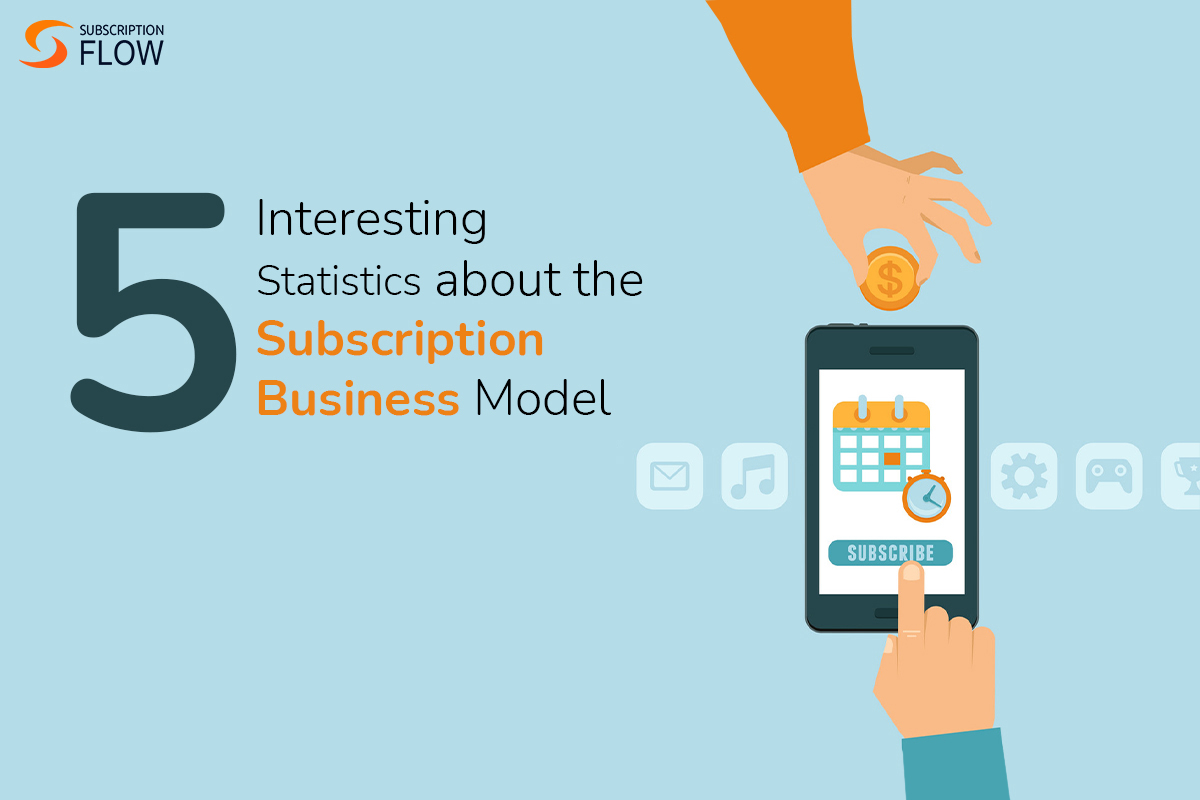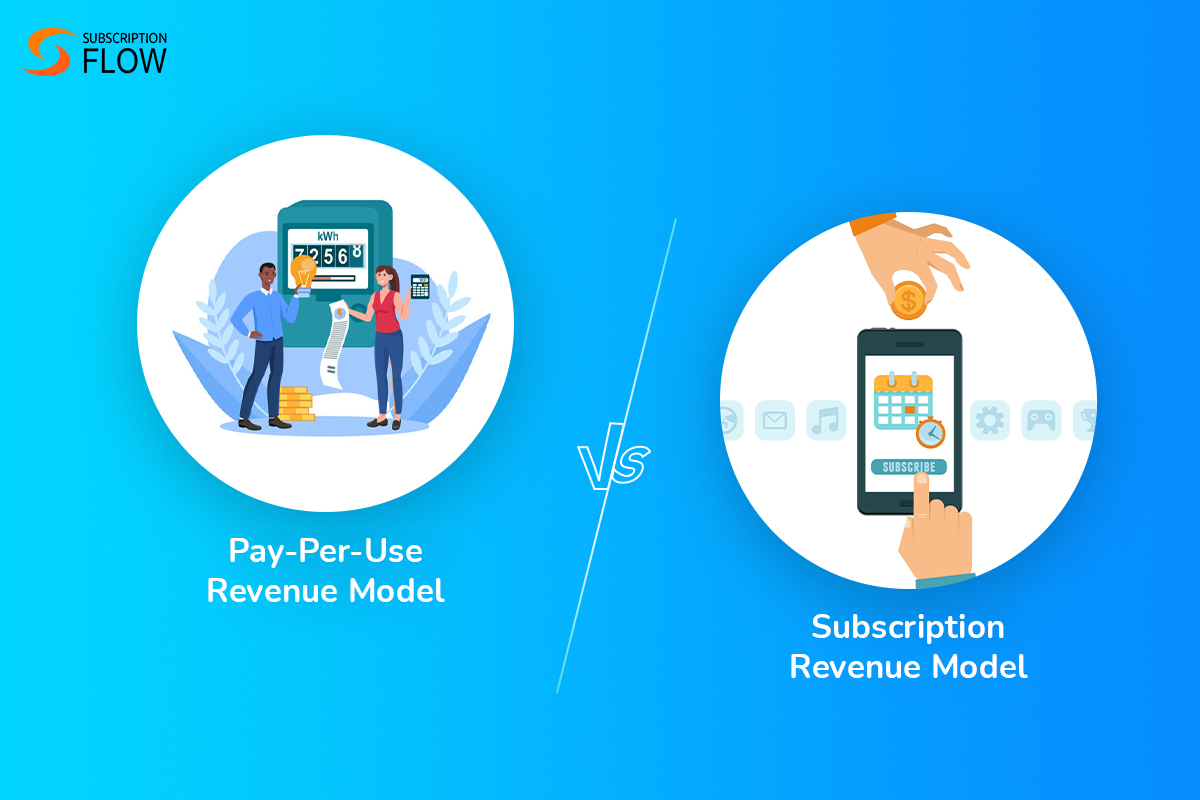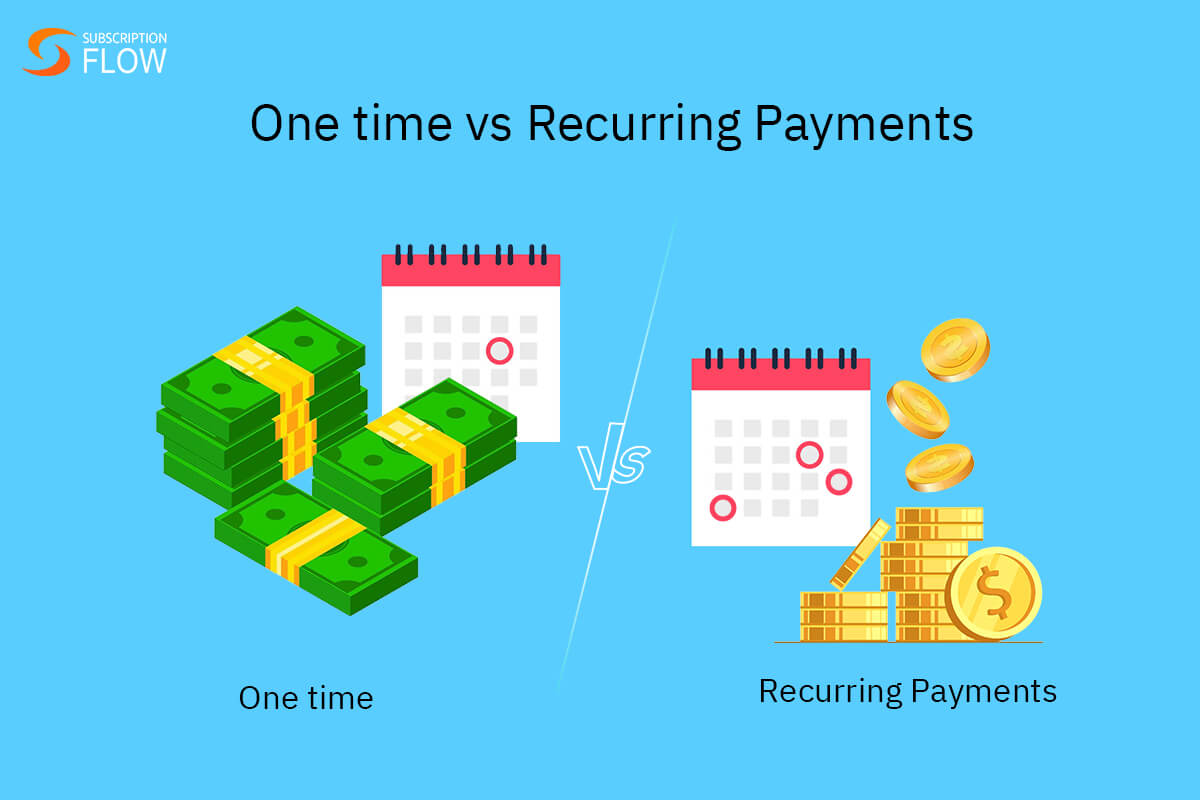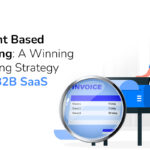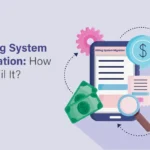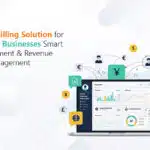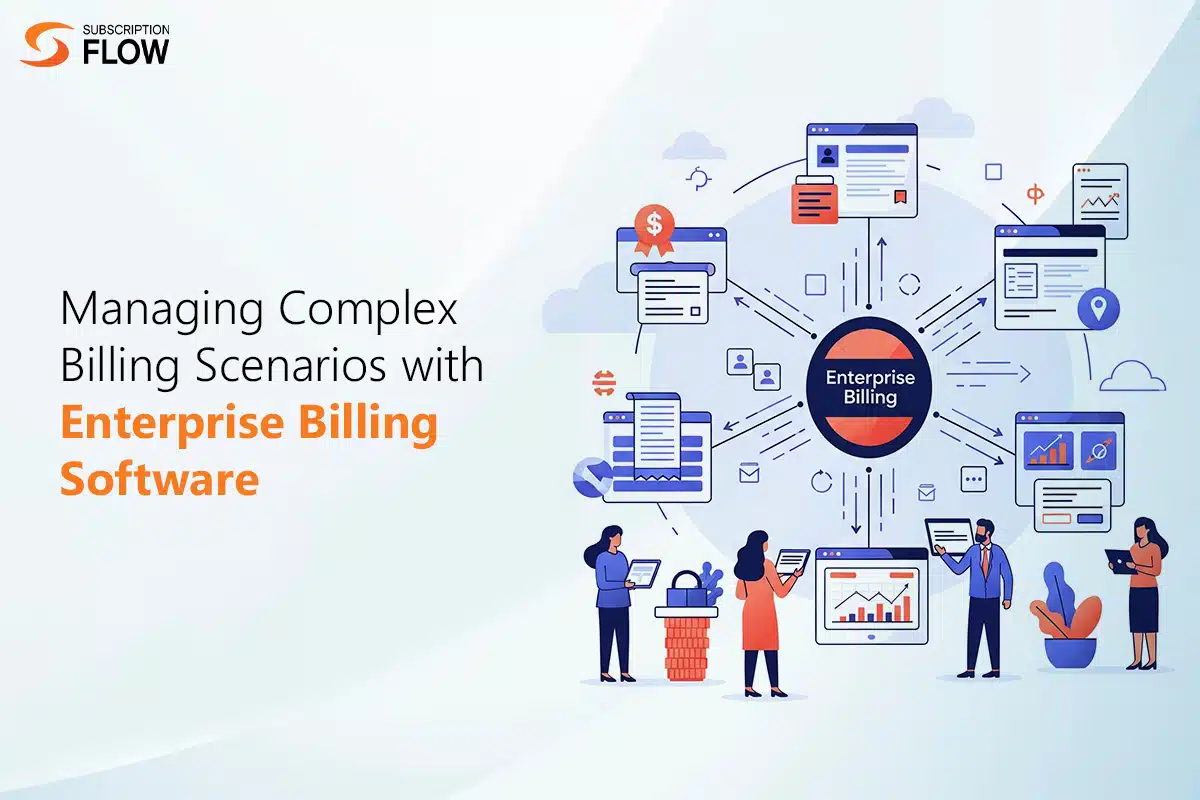
Managing Complex Billing Scenarios with Enterprise Billing Software
Subscription enterprises typically deal with large volumes of invoices. The more the invoices that need to be taken care of, the more administrative burden. Things get even more complicated if we consider invoicing across borders.
Handling multiple tax regulations, generating thousands of invoices, dealing with complicated billing calculations, all the while ensuring accurate finances is not an easy task. It requires a billing software purpose-built for the advanced needs of enterprises.
Traditional billing software is not the solution. It lacks the advanced features and scalability necessary for high-powered tasks. This is where enterprise billing software comes in. As its name suggests, it is a billing software designed with enterprise needs in mind.
In this article, let’s explore everything you need to know about enterprise billing software.
What is Enterprise Billing Software?
Enterprise billing software caters to the specific billing requirements of enterprise businesses. These requirements include automated invoicing, payment processing, subscription management, and more. Enterprise billing is not like regular billing. It involves more complication, and requires dynamic solutions.
Enterprise billing software offers a comprehensive and advanced feature-kit. These features facilitate enterprises in handling automated recurring billing for large payment volumes. They support complex pricing structures, and international subscription operations, allowing companies to grow beyond borders.
Why is Enterprise Billing Software Needed?
Businesses need to rely on this software due to these factors:
- High-Volume Transactions
Subscription enterprises typically have huge customer bases. All of these customers have to be billed on a recurring basis, as their subscriptions require. The more invoices there are to be dealt with, the more complicated financial operations become.
An advanced billing system becomes important as it automates most of the payment processes. For instance, it automates billing schedule tracking, invoice generation, payment processing, and billing adjustments. By doing so, it relieves a great deal of administrative burden.
- Multiple Billing Models
Enterprises usually offer a variety of subscription plans and pricing structures. Customers are not restricted to standard subscription billing only. Advanced billing models such as usage-based billing, tiered and volume pricing, etc. are employed according to the nature of the subscription service, and customer demands.
Standard billing software only offers traditional billing support. In order to support advanced models, agile billing solutions are required.
- Global Compliance
When dealing with customers from around the world, compliance with global standards becomes necessary. One such standard is the revenue recognition principle (ASC 606 and IFRS 15).
In order to accurately report their revenue, companies must rely on software that offers easy revenue recognition management. Adherence to such international financial standards is also compulsory for avoiding heavy penalties.
- Multiple Currency Support
Since enterprises cater to a multinational customer base, they need to make pricing fair for all. Customers prefer to be billed in their local currencies. Paying in a standard currency might seem unfair, and charges might come off as unexpected. Enterprise billing software resolve this problem by letting companies invoice in multiple currencies.
- Multiple Entity Support
It is common for an enterprise to operate in different locations. It might comprise of different departments or sub-units, or have sister branches across borders. Robust billing software enables all units of an enterprise to be on the same page.
It prevents chaotic workflows, and ensures that enterprises remain up-to-date with regards to their financial data and subscription billing progress.
- Custom Subscription Contracts
Custom subscription contracts are more common in the B2B landscape. Companies create these contracts based on the special needs of their customers, and negotiate pricing accordingly.
These scenarios can be easily accommodated by flexible billing software, that bills according to each customer’s unique subscription terms.
Key Features of Enterprise Billing Software
These are the major features that enterprise billing software offers:
- Automated Recurring Billing
This is a must-have feature for ongoing subscription cycles. It involves automating every key aspect of billing for fast and error-free payments. Companies can sit back and watch as their billing platform handles payments for them end-to-end.
With enterprise billing software, chances of missed or delayed payments are minimized. The software automatically charges customers when their subscription renewal dates arrive. This speeds up the renewal process, and ensures hassle-free operations.
- Automated Revenue Recognition
Revenue recognition must not be performed manually, especially on a large scale. It is simply too error-prone. Billing software intelligently manages revenue by keeping a track of deferred and earned funds.
Deferred amounts are automatically converted into earned revenue over customers’ subscription lifecycles. This helps businesses comply with revenue recognition rules easily.
Moreover, this software allows companies to manage their accounts receivable. It converts AR into earned revenue as soon as customer payments are received.
- Custom Pricing
This feature ensures that companies can price their way. They don’t have to follow rigid pricing rules. In fact, they can employ the pricing models that resonate the most with their offerings, and their customers. They can even extend unique prices to special customer segments.
Moreover, they can offer personalized discounts and coupons according to their retention strategy. They can also extend loyalty rewards, and dynamic pricing strategies. Agile billing software can handle it all.
- Advanced Metering
Such software also offers advanced metering capabilities that entail real-time customer usage-tracking, and charge adjustments. This feature is important for companies that work with usage-based billing models.
- Real-Time Reporting and Analytics
Subscription enterprises require real-time insights into their financial operations and performance. Advanced analytics offer them increased visibility into their activities and progress. Businesses can measure their revenue over different time periods (MRR, QRR, ARR etc.).
They can also measure other key subscription metrics such as CLV, churn-rate, and more. The software allows them to generate customized financial reports to track their performance.
- Integrations with External Software
The software can flexibly be integrated with third-party platforms. Smooth integrations allow businesses to create their own comprehensive network of tools.
The billing software ensures that the data stays consistent throughout this network. It allows businesses to manage all their data from one unified platform.
- Dunning Management
Dunning management allows companies to recover their lost revenue. It prevents revenue leakage that occurs through stubborn payment failures. Advanced software is built with smart dunning capabilities. These include efficient payment retry mechanisms, automatic payment reminders, and proactive customer communication.
How to Choose the Best Enterprise Billing Software?
An enterprise’s choice of billing software depends upon its own unique requirements. Generally, companies should look for these features in a software to know if it is a good match for enterprise billing:
- Scalability
Enterprises grow fast. Their billing software must be able to catch up with their pace. It must be able to process thousands of transactions in the same day without faltering.
- Advanced Billing Logic
The software must be able to execute billing based on flexible usage-based models. It must support easy application of customized pricing and discounts. In addition, it should be capable of automating billing adjustments, such as proration.
- Integration
The billing software must be able to easily integrate with other software in a business’s use. Otherwise billing can be disjointed. Seamless integrations that don’t involve complicated coding are important for maintaining unified workflows.
- Security and Compliance
Enterprises deal with considerable amounts of customer data. In order to build trustworthy relationships, they need to be compliant with data security standards, such as PCI DSS. Advanced billing software helps companies stay compliant with such regulations.
- Global Business Support
Companies operating internationally require features such as multiple payment gateways integration, multiple-currency support, automated tax management, etc.
Their billing has to be compliant with the tax regulations of the regions they operate in. Enterprise billing software offers automated, dynamic tax calculations.
How SubscriptionFlow Powers Enterprise Billing
At SubscriptionFlow, we cater to the unique billing needs of the subscription enterprises. These are some of the intelligent billing features we offer:
- Multiple Billing Models
Businesses can flexibly bill the way they want. They can invoice according to dynamic billing models, such as volume and tiered pricing, usage-based billing, hybrid billing, and more.
SubscriptionFlow offers smart metering capabilities, and measures customer usage in real-time. This allows for the creation of accurate invoices with detailed breakdown of subscription charges.
- Custom Invoices and Billing Workflows
Businesses can create unique invoices with deep customizations. They can change invoice layout, themes, data fields, and more. They can save these custom templates, and re-use them automatically.
Moreover, businesses can set up batch invoices to process large transaction volumes in one go. They can flexibly configure their billing workflows to suit their needs—all without complicated coding.
- Customer Self-Service Portals
SubscriptionFlow offers convenient self-service portals that allow customers to monitor and manage their own subscriptions. These portals can be personalized according to customers’ preferences.
They enable customers to modify and cancel their plans, view invoice history, update account details, and more. With this, the portals not only boost customer engagement, but also reduce administrative burden.
- Automated Renewals
Billing is fully automated, and so are the customer renewals. Businesses can also leverage one-click renewals and subscription re-activation. They can also offer flexible grace periods to customers to boost renewal rate.
- Advanced Subscription Management
Customers can freely modify their subscription plans. Whether they upgrade, downgrade, or cancel their plans, SubscriptionFlow prorates their charges precisely. In the event of cancellation, refunds are calculated and issued efficiently. Manual interference is kept to a minimum.
- Smart Integrations
SubscriptionFlow offers a variety of integrations with external software such as accounting platforms, CRMs, communication tools, contract management tools, e-commerce platforms, and more.
We also support a wide range of payment gateways, and payment methods, including both global and regional options. Businesses can access these integrations seamlessly with only a few clicks.
Companies can build their own tech-stack to automate tax compliance, revenue recognition, complicated accounting, and a lot more. SubscriptionFlow ensures that their data stays consistent across all platforms, powering smooth workflows.
Enterprise billing doesn’t have to complicated. Book a demo with SubscriptionFlow today to leverage advanced billing that is simplified and automated.


